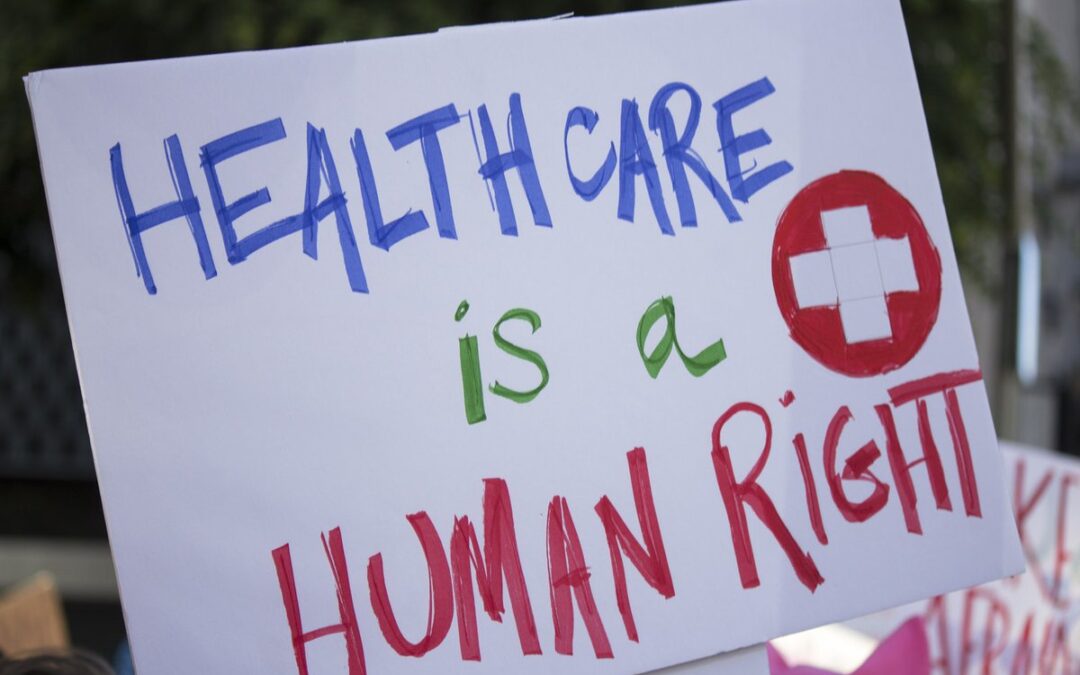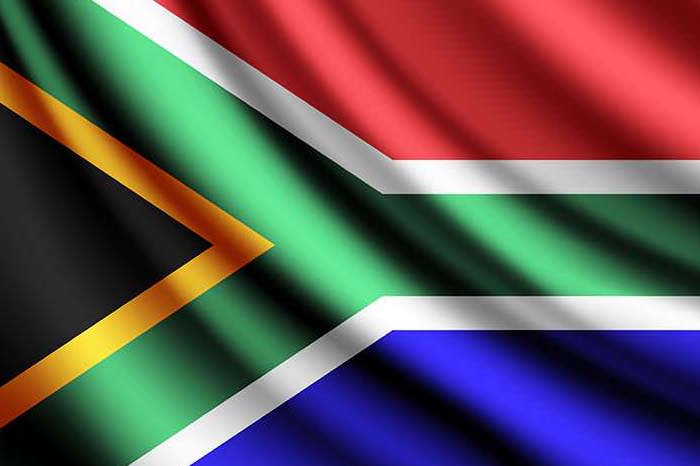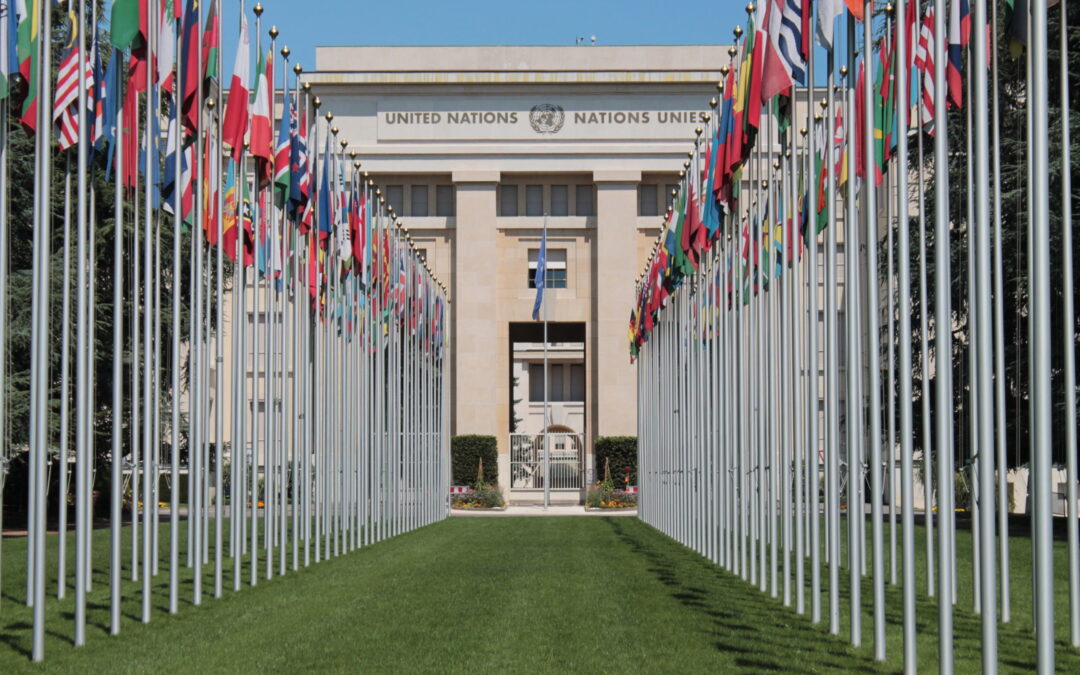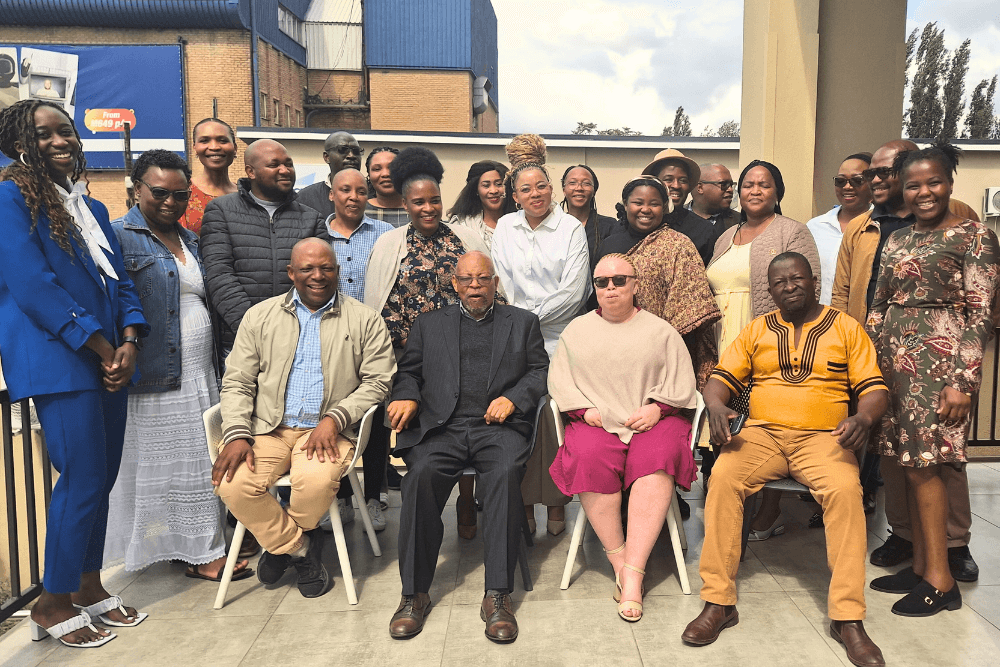
Nov 7, 2023 | News
World Health Organization (WHO) member states should push for clear commitments to human rights protections in the text of a draft “pandemic treaty” being negotiated on November 6-10, four rights organizations said today. The current draft fails to enshrine core human rights standards protected under international law, most notably the right to health and the right to benefit from scientific progress, therefore risking a repeat of the tragic failures during the Covid-19 pandemic.
The WHO’s Intergovernmental Negotiating Body is meeting to debate the draft of a new international instrument on pandemic prevention, preparedness, and response with the goal of addressing the failures of the Covid-19 response and preventing another global crisis. However, rather than acting on the lessons learned from the Covid-19 pandemic, the current proposed text offers a weak framework for ensuring that countries will be accountable for maintaining a rights-compliant response to future pandemics.
This is the position taken by four international human rights groups: Amnesty International, the Global Initiative for Economic, Social and Cultural Rights, the International Commission of Jurists, and Human Rights Watch.
“Creating a new pandemic treaty could offer an opportunity to ensure that countries are equipped with proper mechanisms for cooperation and principles to prevent the level of devastation wrought by the Covid-19 pandemic, and the rights violations resulting from government responses,” said Tamaryn Nelson, legal advisor at Amnesty International. “By failing to ground the treaty in existing human rights obligations and inadequately addressing human rights concerns arising during public health emergencies, governments risk repeating history when the next global health crisis hits.”
Existing international human rights law and standards should be explicitly referenced throughout the document, recognizing that they are core to an effective and equitable pandemic response, the organizations said. It should also incorporate developments in international human rights standards reflected, for example, in principles developed by the Global Health Law Consortium and the International Commission of Jurists in the “Principles and Guidelines on Human Rights and Public Health Emergencies,” and the Civil Society Alliance’s “Human Rights Principles For a Pandemic Treaty.”
“A global health architecture that puts profit-driven considerations at the center of global health decisions exacerbated the unprecedented magnitude of illness and death from Covid-19,” said Julia Bleckner, senior health and human rights researcher at Human Rights Watch. “Certain higher-income countries effectively hoarded vaccines and blocked a proposal to share the vaccine recipe, while those in lower-income countries died waiting for a first dose. An equitable and effective response to any future pandemic should ensure states carry out their obligation to, individually and collectively, regulate private entities to prevent them from undermining human rights.”
Human rights standards clearly establish that scientific progress must be available, accessible, acceptable, and of good quality to all individuals and communities. Governments must take steps to ensure that everyone can access the applications of scientific progress without discrimination.
The new treaty should reiterate that governments are required under international human rights law to strictly monitor and regulate private actors when they are involved in financing and the delivery of healthcare, ensuring that all their operations contribute to the full realization of the right to health. But the draft fails to incorporate the human rights framework on strictly monitoring and regulating private actors in healthcare, as well as preventing any harmful impact of private actors’ involvement in healthcare on governments’ capacity to effectively respond to pandemics. For example, the new text includes that state parties should “promote collaboration with relevant stakeholders, including the private sector” without clear human rights guardrails.
The Covid-19 pandemic was both a health and human rights catastrophe. Without clear and binding commitments to human rights law and standards leading up to and during public health emergencies, the crisis gave way to a ripple effect of human rights violations and abuses. Governments enforced lockdowns, quarantines, and other restrictions in ways that often were disproportionate to the public health threat and undermined human rights. In some cases, governments weaponized public health measures to discriminate against marginalized groups and target activists and opponents.
Yet the draft treaty fails to give governments virtually any guidance on how to comply with international law and standards, requiring any restrictions of human rights in the context of such emergencies to be evidence based, legally grounded, non-discriminatory, and necessary and proportionate to meet a compelling human rights threat. To the extent that restrictions undermine full enjoyment of economic and social rights, social relief measures to ensure the protection of those rights should also be put in place.
“The fact that the current draft of the text does not even repeat well established and existing standards in regard to legality, necessity, and proportionality of response measures is as disappointing as it is confounding. The result is a treaty that does not reflect the experience of individuals throughout the world who were subjected to human rights abuses in the name of public health response,” said Timothy Fish Hodgson, senior legal advisor at the International Commission of Jurists. “It is imperative that the negotiated text explicitly includes the necessary safeguards required under international human rights law when responding to a public health threat.”
The Covid-19 pandemic underscored the need for a social safety net and the consequences of failing to substantively account for the social and commercial determinants of health. While the current draft recognizes the ways in which the Covid-19 pandemic exacerbated inequalities, it does not explicitly commit governments to effectively protect the rights that guarantee key underlying determinants of health, including social security, food, education, housing, water, and sanitation, without discrimination.
In order to genuinely achieve its commitments to the principle of equity “at the centre of pandemic prevention, preparedness and response,” the Intergovernmental Negotiating Body should include in the draft explicit language on the obligations to proactively protect the rights of persons from marginalized groups, and to emphasize the human rights protections against discrimination.
“The global health response to the Covid-19 pandemic prioritized profit over the lives of the world’s most marginalized,” Rossella De Falco, programme officer on the right to health at the Global Initiative for Economic, Social and Cultural Rights said. “If countries are serious about preventing the inequities and loss of the Covid-19 pandemic, they will commit to a rights-aligned agreement for future pandemics.”
Please note, the text above is a shortened version of this full statement, adapted by the ICJ for its website.
For more information:
For the International Commission of Jurists, Timothy Fish Hodgson: +27-82-8719-905; or timothy.hodgson@icj.org.
For Human Rights Watch, in Nairobi, Julia Bleckner: +1-917-890-4195; or blecknj@hrw.org.
For the Global Initiative for Economic, Social and Cultural Rights: +39-393-819-5332 or rossella@gi-escr.org
For Amnesty International, Tamaryn Nelson: tamaryn.nelson@amnesty.org
Background:
Previous joint statement of ICJ, AI, GI-ESCR and HRW (24 February 2023) available here.
ICJ and Global Health Law Consortium “Principles and Guidelines on Human Rights in Public Health Emergencies” available here.
Civil Society Alliance for Human Rights in the Pandemic Treaty “Human Rights Principles for a Pandemic Treaty” (11 April 2022) available here.
Civil Society Alliance for Human Rights in the Pandemic Treaty “Why States Must Ensure Full, Meaningful and Effective Civil Society Participation in developing a Pandemic Treaty” (11 April 2022), available here.
Download the full statement

Nov 1, 2023 | Committee on the Elimination of Racial Discrimination, Legal submissions, News, Treaty Bodies, Work with the UN
The International Commission of Jurists (ICJ) made a submission to the UN Committee on the Elimination of Racial Discrimination in view of the Committee’s examination of the Combined Ninth to Eleventh Periodic Reports of South Africa under Article 9 of the International Convention on the Elimination of All Forms of Racial Discrimination (ICERD). The submission focussed primarily on the treatment of non-citizens with reference to the 2019 National Action Plan and on South Africa’s violations of the right to access health care and treatment, the right to work, as well as on concerns around residence and humanitarian protection for Zimbabweans.
The following are among some of the recommendations featured in the submission, which ICJ addressed to the South African government, to tackle a number of violations of the ICERD:
- Enact legislation that permits trained attorneys who are non-citizen/non-permanent residents to be admitted into the South African legal profession. Remove unequal practices and policies that discriminate against non-citizens and deny or undermine their ability to work in their chosen profession. Promote and advance the rights to work, to free choice of employment, to just and favorable conditions of work, to protection against unemployment, to equal pay for equal work, to just and favorable remuneration;
- Acknowledge that, based on the demographics of South Africa’s migration trends, discrimination based on national origin and citizenship status carries a quality of xenophobia and racial discrimination and should be recognized as unconstitutional and a violation of South Africa’s obligations under the Convention;
- Halt the termination of the ZEP programme and institute a pathway toward permanent residency for the 178,000 Zimbabweans who have lived and worked in South Africa for over a decade under the ZEP programme; and
- Extend the ruling that found denying access to public healthcare for non-citizen mothers, lactating mothers and children under the age of six is unconstitutional so as to ensure that denial of access to public healthcare to any individual in South Africa is unconstitutional;
- Formalize the informal economy by ensuring that informal economy workers are catered for under labour, occupational health and safety, social protection and non-discrimination laws;
- Ensure that by-laws and regulations comply with the right to work and the right to non-discrimination in the South African Constitution and under the Convention.
The following organizations have endorsed this submission:
- Lawyers for Human Rights
- Section 27
- Centre for Applied Legal Studies
- Health Justice Initiative
- Kopanang Africa Against Xenophobia
- Solidarity Centre
- The Consortium for Refugees and Migrants in Southern Africa.
Download the submission

Oct 24, 2023 | Advocacy, News, Statements, Work with the UN
A week of negotiations started at the United Nations in Geneva yesterday to enhance the international legal framework to regulate business enterprises, especially transnational corporations, and increase accountability for human rights abuses and violations linked to their activities. The ICJ has been actively participating in the previous sessions of these negotiations in the last nine years and is committed to pursue its constructive contribution to the debate. Read our statement below.
“Thank you, Mr. Chair.
The International Commission of Jurists (ICJ) congratulates you on your election as the Chairperson-Rapporteur.
The ICJ acknowledges the efforts made by the Chairmanship to propose a revised and streamlined text on the basis of the various inputs received and consultations organized since the 8th session of this working group. We appreciate that this work has resulted in a more concise and clearer text in several places, which, in some respects, may better facilitate the negotiations ahead of us this week. It brings more internal coherence to the text and avoid repetitions that were affecting previous iterations. We also acknowledge that there are varying and divergent positions among States on the more difficult issues under discussion in this process and that you have proposed some compromise formulations to bridge the gaps.
We, however, regret that some critical provisions have disappeared from the revised draft in front of us at this session. The ICJ is particularly concerned that articles concerning prevention, liability and jurisdiction have been stripped of key elements that served to clarify international human rights law with regard to accountability for human rights abuses and violations in the context of business activities; and to ensure access to justice for the victims of such abuses and violations including through access to effective judicial remedies.
The ICJ will thus intervene in the negotiations during this 9th session in a constructive spirit with the aim to make proposals and comments addressing these gaps in the protection of human rights in the context of the activities of transnational companies and other business enterprises.
We are convinced that this process, after 9 years, needs to deliver an ambitious enough text so as to meet the needs of present and future victims and make a real contribution to the necessary development of international law in that area. For these reasons, we urge all States from all regional groupings to participate actively and constructively in the negotiations.
Thank you very much, Mr. Chairperson-Rapporteur.”
Statement delivered by:
Sandra Epal Ratjen, ICJ UN Representative and Senior Legal Adviser, e: sandra.epal@icj.org

Oct 23, 2023 | News
On 11 and 12 October 2023, the International Commission of Jurists (ICJ), People’s Matrix Association and Seinoli Legal Centre (SLC) jointly held a workshop for magistrates and judges in Maseru, Lesotho’s capital. Drawing on ICJ’s 8 March Principles for a Human Rights-Based Approach to Criminal Law Proscribing Conduct Associated with Sex, Reproduction, Drug Use, HIV, Homelessness and Poverty, the workshop was aimed at enhancing the Lesotho judiciary’s ability to apply a human rights-based approach in the application and enforcement of domestic criminal law.
The central theme explored by participants throughout the workshop was the profoundly negative human rights impact of unjustified criminalization, especially for marginalized individuals and communities. At the workshop, the Acting Chief Justice of Lesotho, Tšeliso Monapathi, emphasized the importance of the judiciary as the last line of defence for ensuring the protection of human rights.
Participants at the workshop noted some positive legal developments in Lesotho that are consistent with international human rights law, including the repeal of vagrancy laws through the introduction of the 2010 Penal Code. Most recently, in October 2022, the High Court of Lesotho, sitting as a Constitutional Court, declared section 32(a)(vii) of the 2003 Sexual Offences Act unconstitutional. The Court ruled that the provision, which imposes the death penalty on HIV-infected persons who commit sexual offences, was unconstitutional to the extent that it violated the rights to equality before the law and equal protection of the law, freedom from discrimination, and freedom from inhuman treatment as guaranteed by the Lesotho Constitution. However, in June this year, in their joint submission to the UN Human Rights Committee, the ICJ, People’s Matrix and Seinoli Legal Centre noted with concern that the Sexual Offences Act left the common law offence of “sodomy” intact.
“Despite some progressive milestones in the protection and promotion of fundamental human rights and freedoms of all persons, it is deeply concerning that there remain a number of criminal laws that disproportionately impact sex workers, LGBTQI+ persons, those seeking sexual and reproductive health care services, such as abortion care, and other marginalized groups,” said Mosa Lestie, Programme Lawyer at Seinoli Legal Centre.
The participants, the majority of whom were magistrates, discussed measures the courts have employed to promote and protect the human rights of marginalized groups. This includes sensitization on the human rights of persons with disabilities, LGBTQI+ persons and other marginalized groups, particularly their right to access to justice and the implementation and continual development of court rules to ensure that all persons can participate in court proceedings on an equal basis as complainants, witnesses, accused persons or experts. For instance, in July 2023, the Lesotho National Federation hosted a training workshop with some magistrates and prosecutors on access to justice for persons with disabilities and the 2023 Disability Equity (Procedure) Rules.
Despite these efforts, participants expressed concern that limitations continue to exist in relation to: the provision of accommodations for accused and witnesses at court; worrying trends of discrimination within the wider criminal justice system, especially among the police. They also identified the need for ongoing human rights training for magistrates and other actors in the criminal justice system.
“The unjustified or arbitrary over-criminalization of conduct associated with LGBTQI+ individuals in Lesotho continues to result in discrimination and stigmatization. In turn, this has significantly impeded access to justice for the communities the People’s Matrix supports,” said Giselle Ratalane, Programme Manager at the People’s Matrix Association.
“As the ICJ’s 8 March Principles underscore, these criminal laws have discriminatory effects on marginalized groups and violate Lesotho’s obligations under international human rights law, including with respect to the rights to equality, non-discrimination, dignity, privacy, freedom of expression and more,” concluded Mulesa Lumina, ICJ Africa’s Legal and Communications Associate Officer.
Contact
Mulesa Lumina, Legal and Communications Associate Officer (Africa Regional Programme), e: mulesa.lumina@icj.org
Kaajal Ramjathan-Keogh, Director (Africa Regional Programme), e: kaajal.keogh@icj.org
Background
While Lesotho has made some strides in recognizing and safeguarding the human rights of all persons, including through the introduction of various laws and policies, certain conduct continues to be targeted by criminal laws notwithstanding the fact that under general principles of criminal law and international human rights law and standards, such conduct should not be criminalized in the first place.
As a State Party to a number of international human rights instruments, including the International Covenant on Civil and Political Rights (ICCPR), the African Charter on Human and Peoples’ Rights and the Protocol to the African Charter on Human and Peoples’ Rights on the Rights of Women in Africa, Lesotho must ensure that its criminal laws do not directly or indirectly discriminate against anyone on grounds prohibited by international human rights law.
The 8 March Principles for a Human Rights-Based Approach to Criminal Law Proscribing Conduct Associated with Sex, Reproduction, Drug Use, HIV, Homelessness and Poverty, recently published by the ICJ, offer a clear, accessible, and operational legal framework and practical legal guidance for a variety of stakeholders, including judges and magistrates, on the application of criminal law to conduct associated with consensual sexual activities, such as consensual same-sex sexual relations and sex work (Principles 16 and 17); the criminalization of sexual orientation, gender identity and gender expression (Principle 18); drug use (Principle 20); as well as homelessness and poverty (Principle 21). As stated in Principles 7 and 8, criminal law “must be interpreted consistently with international human rights law” and “…may not, on its face or as applied, in substance or in form, directly or indirectly discriminate on any, including multiple and intersecting, grounds prohibited by international human rights law”.









